Dutch experience supports Zhuhai’s resilient city development
21 September 2020Since the beginning of 2018, a team of Dutch experts from World Waternet (Affiliated to the Amsterdam public water authority Waternet) and Rotterdam’s urban planning office ‘Palmbout Urban Landscapes’, under the request of Zhuhai Housing and Urban Planning Development, has carried out advisory works for the Europe-China Eco-Cities Link (EC-Link) project.
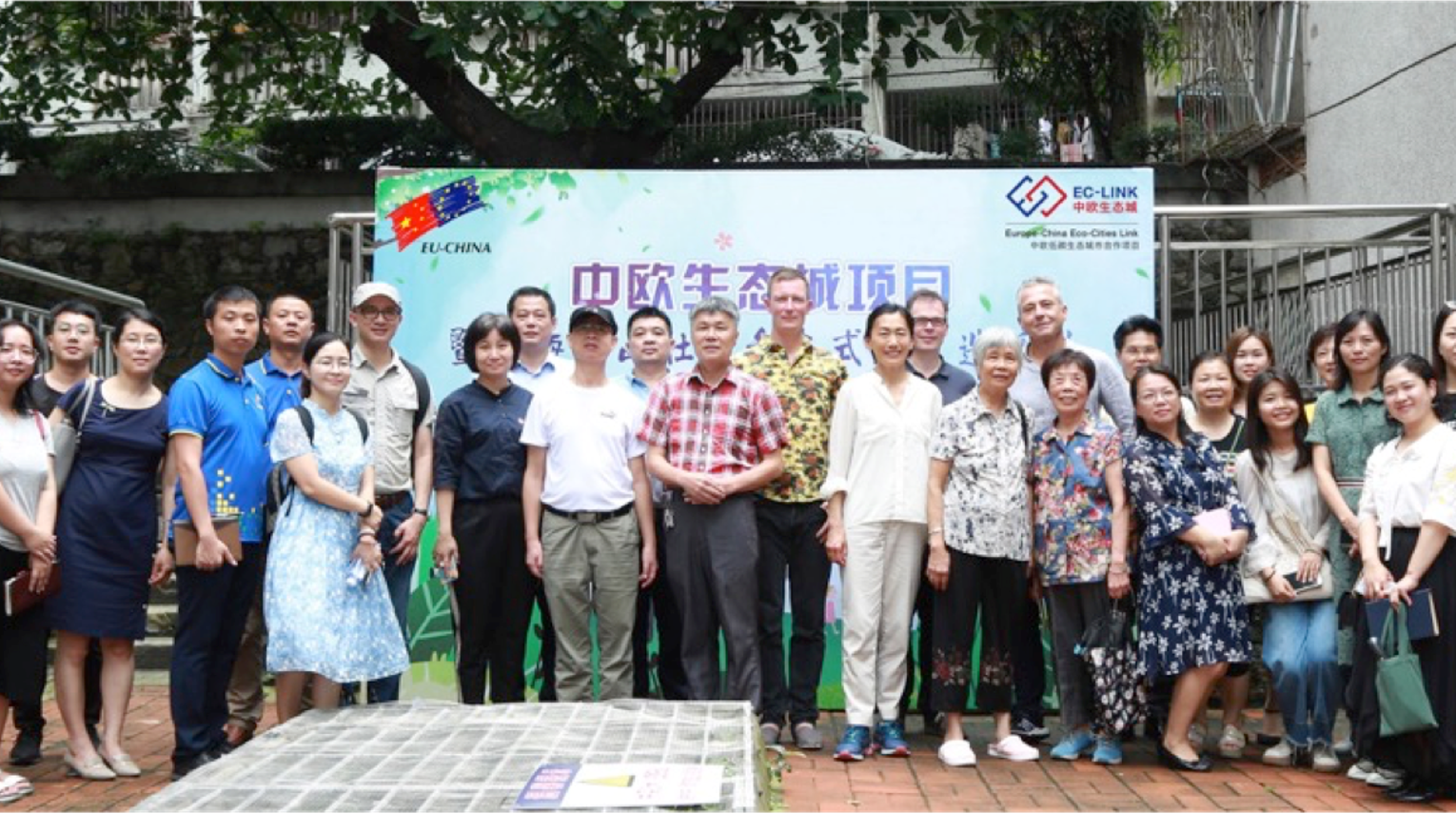 Zhuhai 2019: Citizen participation workshop in Old Town Zhuhai.
Zhuhai 2019: Citizen participation workshop in Old Town Zhuhai.
The EC-Link project (You are leaving this website), signed by the European Commission and the Chinese Government, focuses on EU-China partnership on sustainable urbanization. Urbanization is a global trend, and although the challenges in Europe and China are very different, sharing and partnering at municipal level has great potential to help address social, economic and environmental sustainability issues. China can benefit from European know-how to achieve its sustainability goals, while Europe can integrate the knowledge gained from pilot projects in China. EC-Link was formally launched in November 2013 and concluded with the online Europe-China Urban Green Development Forum (You are leaving this website) in September 2020.
Zhuhai, one of the pilot cities of the EC-Link project
Zhuhai is an important prefecture-level city, situated on the southern coast of Guangdong Province. It plays a key role in the Pearl River Delta and is surrounded by a dense network of cities like Hong Kong, Macau and Shenzhen. Zhuhai has officially become one of the ten pilot cities of the EC-Link project in 2015.
With a coastline of 690 km and under the influence of tropical storms in summer, the city is exposed to high risks of extreme weather disasters such as typhoons, heavy rains and floods. These threats were epitomized by typhoon Hato (August 2017), the strongest typhoon in more than half a century in the coastal areas of Guangdong Province, causing significant damage to the city. Zhuhai has experienced fast growth and unprecedented land-use changes over the past three decades. To protect the city, Zhuhai seeks to identify best practices in storm defense, water management and urban resilience.
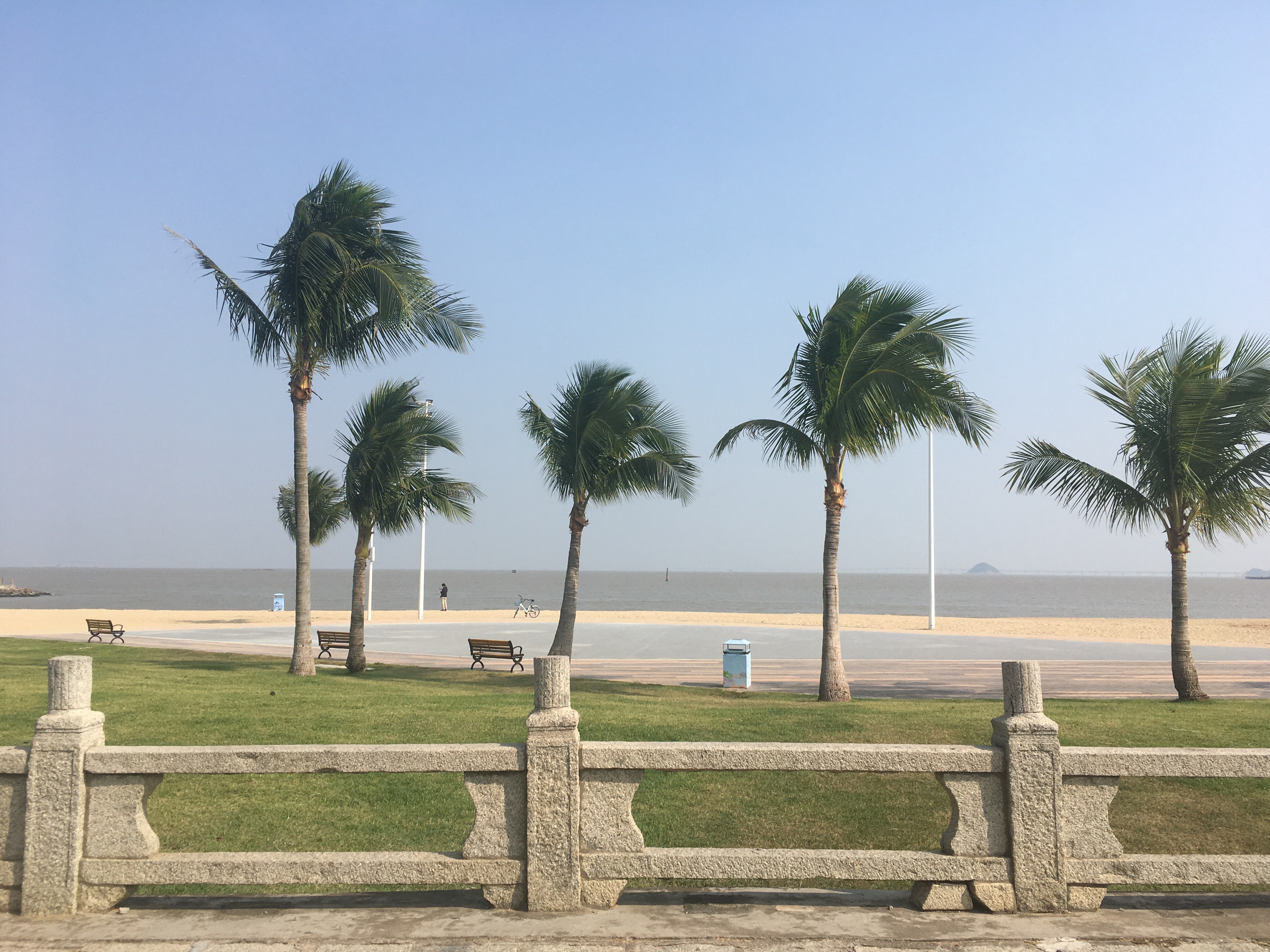 Zhuhai's territory includes 146 islands and a coastline of 690 km (picture taken in 2019).
Zhuhai's territory includes 146 islands and a coastline of 690 km (picture taken in 2019).
Strategies for the sustainable development and growth of Zhuhai
The collaboration with Zhuhai initially focused on the revision of the existing Zhuhai Municipal Urban Planning & Technical Guidelines, which is the general guideline for urban planning and city development in Zhuhai. The Dutch experts from World Waternet and Palmbout Urban Landscapes worked on strategies for the resilient city planning, integrating adaptation planning to reduce vulnerability to expected and unexpected impacts of climate change. Strategies mainly focused on flood prevention and extreme precipitation measures, with the aim of not only advising on an overall strategy and policy to guide resilient city development, but also raise the awareness of Zhuhai’s citizens.
This activity resulted in a consultancy report on guidelines, principles and process for a resilient Zhuhai, showcasing the Dutch approach (‘Analyze – Ambition – Action’-methodology). This report emphasizes that by applying climate change adaptation measures in other areas (such as ecology, urban development, transportation, etc.), it will not only contribute to the safety and well-being of the citizens, but will also significantly improve the quality of the environment.
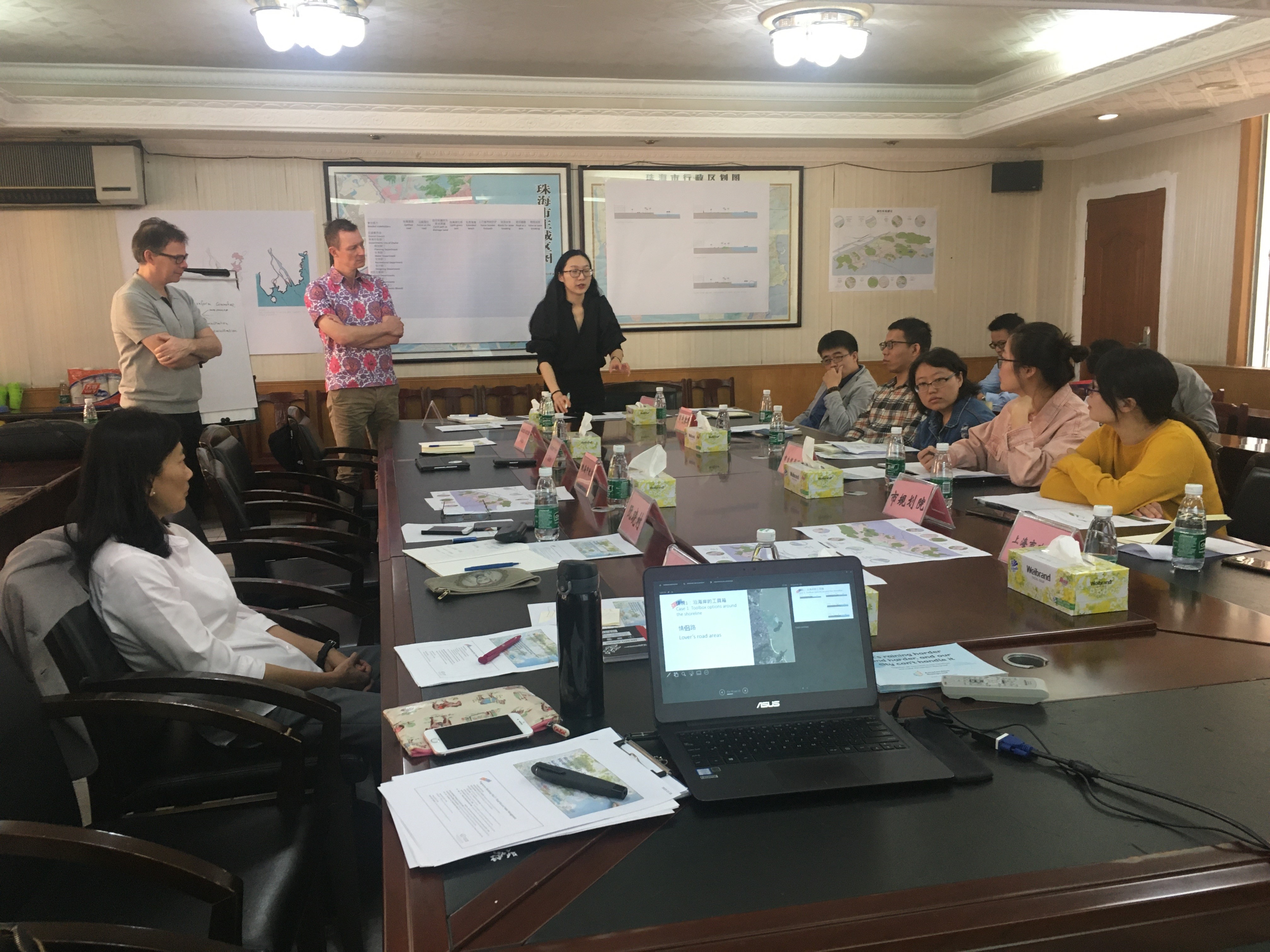
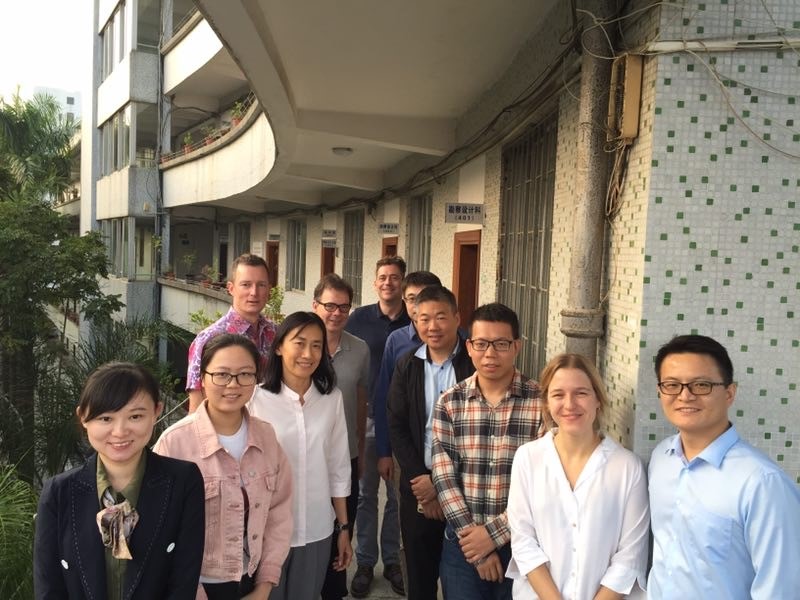 Zhuhai 2019, Workshop 'Designing Solutions for a Resilient Zhuhai'.
Zhuhai 2019, Workshop 'Designing Solutions for a Resilient Zhuhai'.
Pilot projects in Zhuhai
The activities mentioned above resulted in further cooperation on designing 3 pilot projects in different areas of Zhuhai in 2019. These pilot projects helped Zhuhai better understand the challenges it faces in urban resilience development, review its ability to face them and unite its people, projects and priorities:
- Qianhuan area – creating alternative resilient designs for a green belt park.
- Old Town Zhuhai – application of the Amsterdam Rainproof (You are leaving this website) approach, aimed at public engagement/participation for resilient design on neighborhood scale for public spaces.
- Lovers Road & Jitimen coastal areas – identification of opportunities for levee & water network planning.
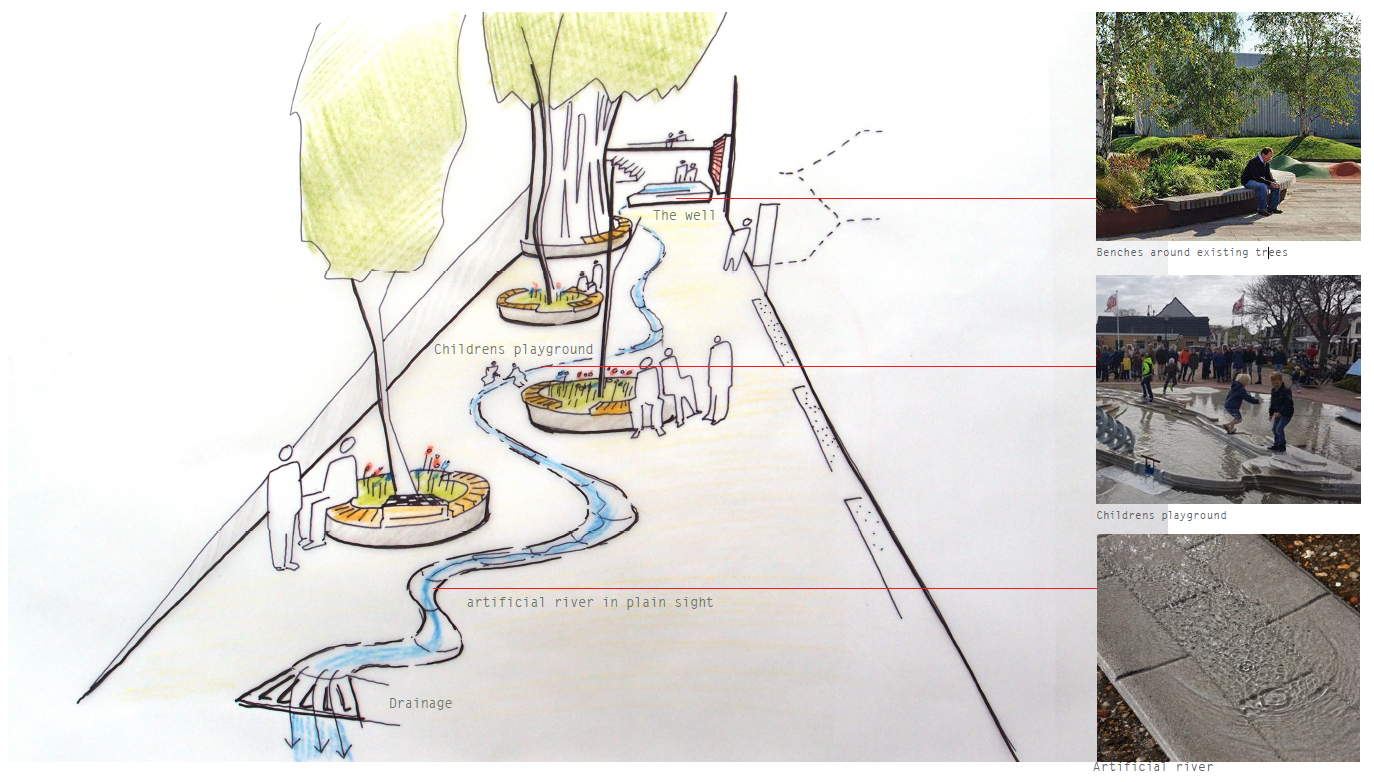 Zhuhai 2019: Drawing of a possible solution for an underused historic well (pilot 2).
Zhuhai 2019: Drawing of a possible solution for an underused historic well (pilot 2).
During these years, the fieldwork and the many workshops were extremely important to enable the exchange of knowledge and information between the Dutch and Chinese experts and to effectively support the Municipality of Zhuhai in its process of building an effective resilient city. For the pilot project, focusing on the Hengqing & Jinwan coastal areas, the team produced the advisory report ‘Climate resilient Zhuhai: Flood Defense Approach Recommendations’. This report sets out an overall strategy and policy direction for flood prevention and is the result of an intensive collaboration. It provides specific recommendations for flood protection, complemented by an intervention toolbox, which will guide Zhuhai’s future sustainable coastal development.
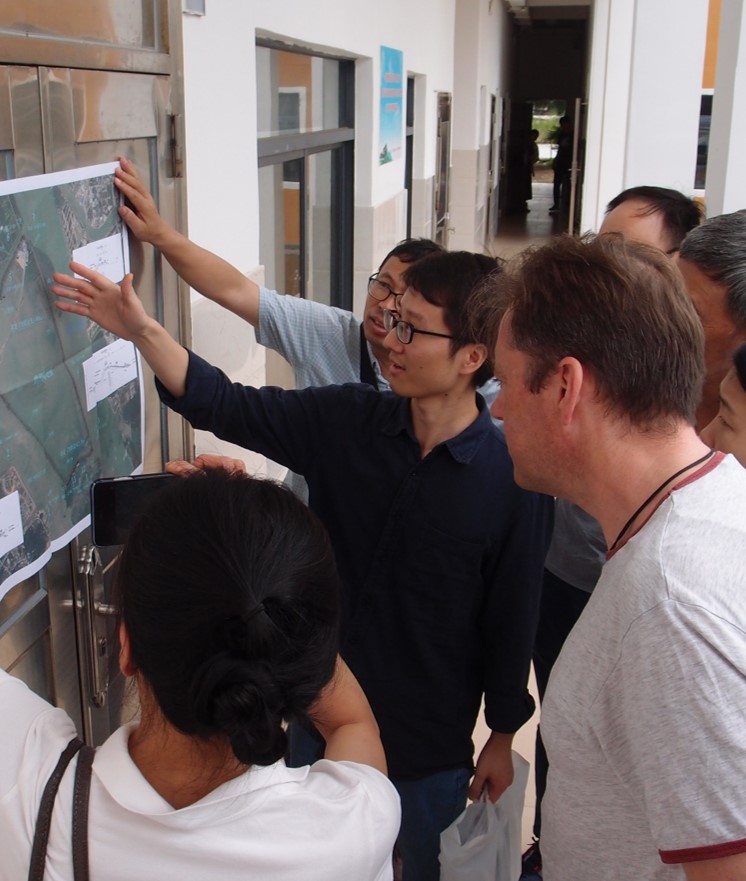
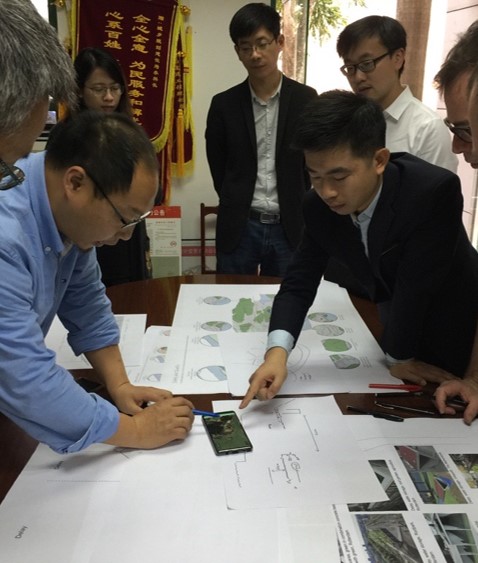 Zhuhai 2019: Workshop Flood Risk & Water Management.
Zhuhai 2019: Workshop Flood Risk & Water Management.
Collaboration during COVID-19
Unfortunately, due to the recent pandemic, it was not possible to hand over and present the report in person. Therefore, in May 2020, the final results were presented to several related organizations in Zhuhai via a videoconferencing webinar. The recorded webinar and presentation (pdf) can be viewed here (You are leaving this website).
Europe-China Urban Green Development Forum
The closing forum, with all the EC-Link pilot cities, took place on 8 and 9 September 2020. The results achieved by the EC-Link project in the period 2013-2020 were shared during several speeches and presentations. Here, Kasper Spaan (Waternet), together with Marcel van der Meijs (Palmbout Urban Landscapes) presented the Zhuhai project.
After a successful collaboration with our colleagues in Zhuhai, we believe this is just a start for further cooperation between the Netherlands and Zhuhai (and other Chinese cities). We hope that we can continue to exchange our knowledge and experience on sustainable urban development, learn from each other and work together for a sustainable world.
We greatly thank the following parties for their contribution:
- Palmbout Urban Landscapes
- The EC-Link project team
- Zhuhai Municipal Bureau of Housing and Urban-Rural Development
- Zhuhai Municipal Bureau of Urban Planning & Land Resources
- Zhuhai Shishan community
- The China Academy of Urban Planning and Design
 (You are leaving this website)
(You are leaving this website) 
 (You are leaving this website)
(You are leaving this website)